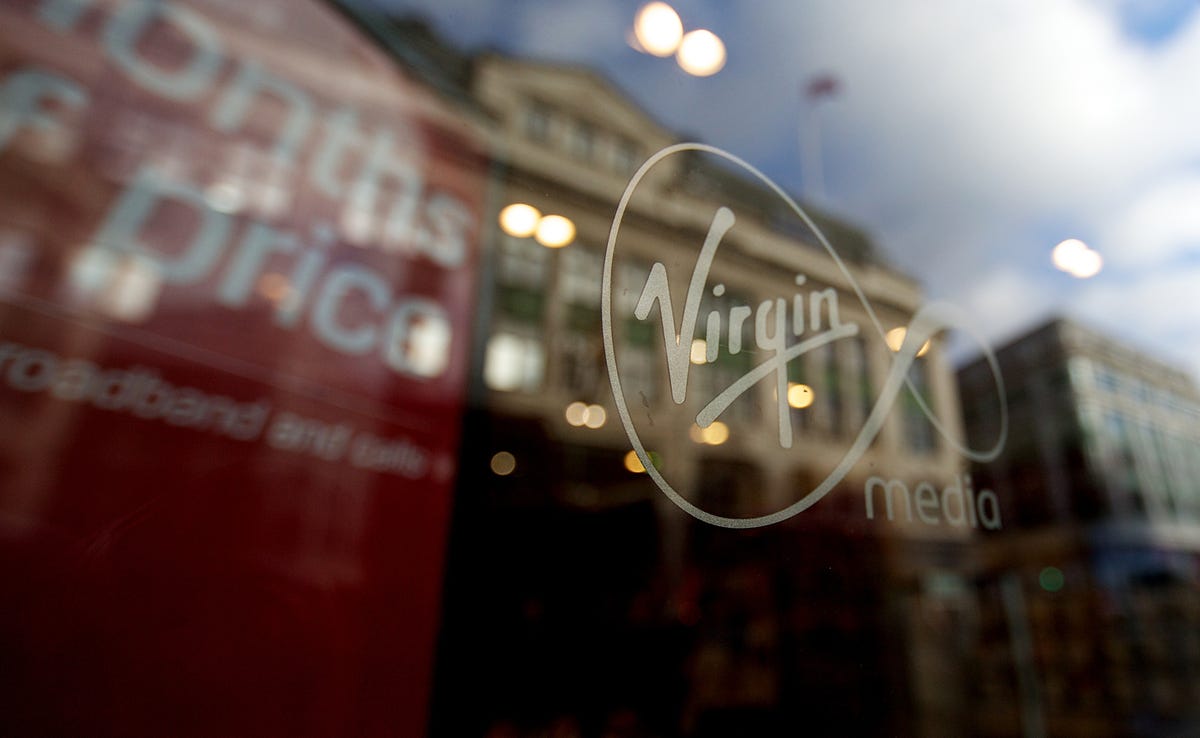
Andew Cowie/AFP/Getty Images
Virgin Media is giving its network a boost, pumping £3 billion into upgrading its existing hardware — a plan that the network says will bring broadband speeds of 152Mbps to 4 million more UK homes.
The provider’s strategy, called “Project Lightning”, will be enacted with the support of Virgin Media’s parent company Liberty Global. Virgin Media says the scheme will add £8 billion of value to the UK’s economy, with 6,000 new jobs and 1,000 apprenticeships to be created over the next five years.
Related stories
- White space broadband approved by the UK to squeeze Internet connection in between TV channels
- EE in ‘stronger position’ than Virgin Media with new TV service
- Virgin Media combines broadband, landline, TV and mobile all from £35
- Dixons Carphone to start its own mobile network with Three’s help
Virgin Media is asking citizens who’d like faster Internet in their area to register interest in the expansion plans online in a scheme dubbed “Cable my Street”. But as Virgin Media says its investment will focus “in areas closest to its existing network and will be planning expansion based on consumer and business demand,” experts are warning that rural residents could be left out of the upcoming upgrade.
“This could mean rural customers are knocked down the priority list if there aren’t enough residents in remote areas to convince Virgin to ‘Cable My Street’,” Ewan Taylor-Gibson, broadband analyst at uSwitch said.
“Virgin Media is in a competitive market. It makes absolute sense that they focus on the areas they feel will generate the best return,” Oliver Johnson, broadband analyst at Point Topic said. “Unfortunately in this context that means that those in rural areas are unlikely to be in Virgin Media’s footprint, although there are some instances where properties or villages on the route of the cable run get a node just by being in the right place.”
“This still doesn’t address the ‘digital divide’ as the provider has clearly indicated that investment will focus on areas that are close to its existing infrastructure,” Dominic Baliszewski, telecoms analyst at broadbandchoices said.
“This means that already well-connected areas will get a wider selection of services to choose from, while rural dwellers are left in the cold again.”
Another analyst noted that Virgin’s plans were in line with its previously-stated plans. “While the roll-out is not going to help those in the rural areas, there is no pressure or commercial benefit to Virgin Media if it was to do so,” Andrew Ferguson, analyst at thinkbroadband said. “It has already highlighted that if the return on investment is below expectations during this expansion, they may stop before the completed level of coverage is finished. This expansion fits into the jointly declared vision that both BT and Virgin Media made to the Public Accounts Committee some years ago, when they said their fibre based broadband networks would reach around two thirds of the UK.”
In a Virgin Media press release, Prime Minister David Cameron said, “This additional private investment will create more opportunities for people and businesses, further boosting our digital economy and helping secure a brighter future for Britain.”




